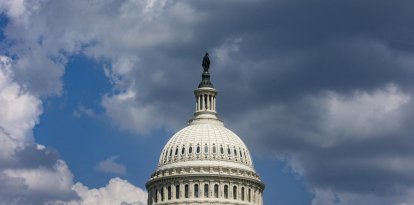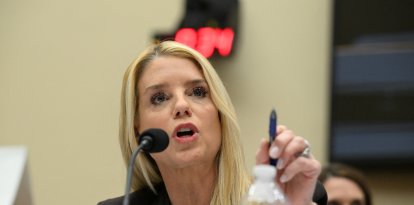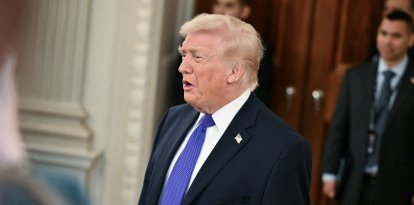Just days ahead of deadline, House approves Johnson's new plan to avert government shutdown
On the last day of session until the presidential election the Republican won broad bipartisan support to send the legislation to the Senate.

The final version of the legislation was agreed to by Johnson between the leaders of both parties/ Kamil Krzaczynski
The House finally approved Mike Johnson's new proposal to avoid a government shutdown. Despite a failed first attempt, the House speaker managed to muster broad bipartisan support on the last day of session in Congress until the November presidential election.
"While this is not the solution any of us prefer, it is the most prudent path forward under the present circumstances. As history has taught and current polling affirms, shutting the government down less than 40 days from a fateful election would be an act of political malpractice," Johnson had said after introducing new legislation to fund the government for at least the next three months.
As for the vote, it ended with 341 in favor and only 82 against, thus sending the bill to the Senate, where it is also expected to have broad support. All of the congressmen who opposed it were Republicans.
Although flirting with a Sept. 30 deadline, lawmakers managed to get negotiations going again after, among other things, Republicans agreed to withdraw the SAVE (Safeguarding American Voter Eligibility) Act, which would require proof of citizenship for voter registration.
What's in the new proposal to avoid a Government Shutdown
.
- $231 million for the Secret Service.
- The new bill leaves out the Save American Voter Eligibility Protection Act (SAVE), which would require proof of citizenship for voter registration.
- It also excludes the $2 billion for the Department of Defense for Virginia-class "ship construction and conversion," a figure that was also included in the previous bill.
- The new legislation also fails to address the Department of Veterans Affairs (VA) shortfall. The agency already warned that it projects a $12 billion shortfall by fiscal 2025.
- It also excludes the additional $10 billion for the Federal Emergency Management Agency's (FEMA) disaster relief fund.
- The new legislation would fund the government for three months, cutting in half the time frame of the previous proposal.
The history of the government shutdown in the U.S.
.
The United States decides how to spend public money year after year when Congress passes what is called the Appropriations Bill. The deadline lawmakers have to agree is October 1. If there is no approved text by then, the Federal Government shuts down.
The logic comes from the National Constitution, specifically from Article 1, Section 9: "No Money shall be drawn from the Treasury but in Consequence of Appropriations made by Law, and a regular Statement and Account of the Receipts and expenditures of all public Money shall be published from time to time."
Once closure is reached, certain agencies directly cease to function. They may be all, some or one in particular. Their employees can't work and their pay is withheld until Capitol Hill comes to an agreement.

























